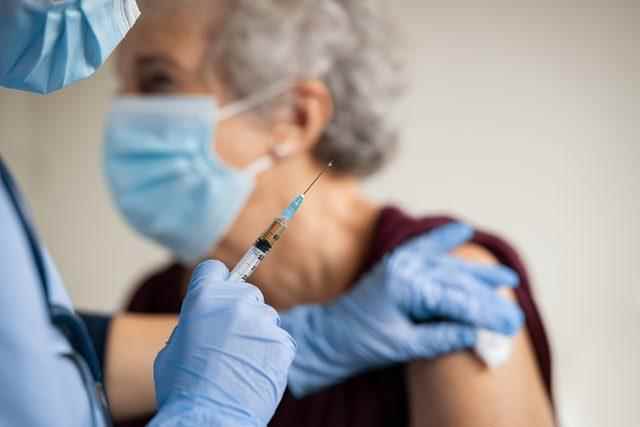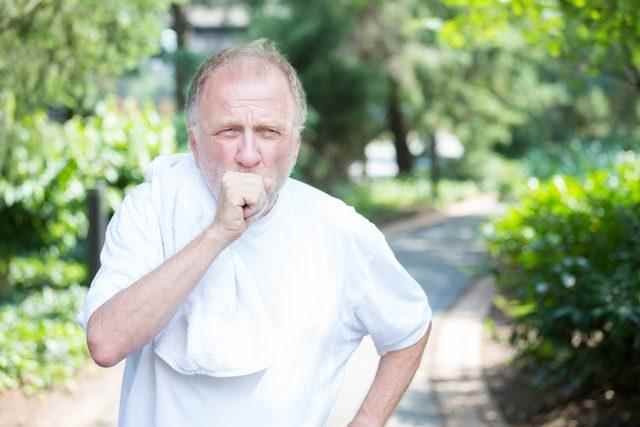Pointing out that the increase in respiratory tract diseases poses a risk especially for COPD and asthma patients, Chest Diseases Specialist Dr. Instructor U. Seha Akduman pointed out that the weakened immune system due to allergies or viral infections can cause COPD and Asthma patients to have attacks and pneumonia that may result in loss of life.
CAN CAUSE CHRONIC RESPIRATORY FAILURE
Stating that each exacerbation of COPD and asthma, that is, deterioration of control, will cause a decrease in lung function, Dr. Instructor U. Seha Akduman said that the lung capacity of patients with increased frequency of exacerbations decreased and the disease stage progressed. He pointed out that possible viral infections may increase the risk of a new exacerbation, especially for COPD patients, and accelerate the progression to chronic respiratory failure.

PATIENTS WITH COPD IS ONLY THE HIGH END OF THE ICEberg
Stating that although the awareness of COPD has increased gradually in the last 5 years, the studies carried out describe the rates of patients diagnosed all over the world and in our country as only the ‘tip of the iceberg’. Instructor U. Seha Akduman said, “According to the predictions of the World Health Organization, COPD-related loss of life will be the third most common cause.”

ATTENTION TO THESE ALARM FINDINGS!
Stating that newly developing shortness of breath, cough, sputum or increasing existing complaints are the most important signs of deterioration of control, Dr. Instructor U. Seha Akduman said, “High fever and decrease in oxygen levels in these patients are also very critical and alarming findings that should be taken into account. Therefore, patients should apply to the hospital without wasting time,” he said.

Stating that patients with COPD, who continue to smoke, especially over the age of 65, whose vaccines are missing and whose treatments are inadequate, are among the patients with the highest risk of pneumonia and acute respiratory failure, Dr. Instructor U. Seha Akduman, diabetes, heart failure, the presence of chronic kidney diseases are important factors that increase the risk.
“COPD DIAGNOSIS INCREASE 4 TIMES IN WINTER”
Stating that approximately 50 percent of patients with COPD were diagnosed while being treated for lower respiratory tract infections, Dr. Instructor U. Seha Akduman, “Since cough, sputum and shortness of breath gradually increase in smokers over the years, patients are not fully aware of their complaints and do not consult a doctor. However, the diagnosis is made when there are complaints due to infection.

PRECAUTIONS MUST BE TAKEN!
Reminding that it should not be forgotten that the doses of drugs used in respiratory diseases may change due to changing weather conditions, and therefore controls are important, Chest Diseases specialist Dr. Instructor U. Seha Akduman gave the following information about the precautions to be taken:
“You should dress appropriately for the weather, such as scarves and berets. More attention should be paid to good living rules such as quitting smoking in patients who smoke, reducing the number if not, using drugs regularly, avoiding crowded and poorly ventilated environments, using masks, regular sleep, and regular nutrition.
COVID VACCINES MUST BE COMPLETED FOR THIS GROUP OF PATIENTS!
Underlining the importance of vaccinating these patients, especially in terms of protection, Dr. Instructor U. Seha Akduman gave the following information about the vaccines to be made: “Today, there are pneumonia vaccines, flu vaccines and COVID vaccines that we can do. Influenza vaccination is recommended in October or November. The influenza virus mutates and the vaccine changes every year. Therefore, it is recommended to be repeated every year. It does not have a hundred percent protection, but it provides a mild recovery from the disease. There are two types of Pneumococcal vaccine for the pneumonia vaccine, one administered once in a lifetime (KPA13) and the other repeated once in 5 years (PPA23). In patients who have not been vaccinated against pneumococcus, vaccination is started with KPA 13 and 1 dose of PPA23 is administered at least 8 weeks later. They are very safe vaccines and are also applied in our National Health System. Completion of COVID vaccines is also very important in COPD and Asthma patients.”
